JoAnn Falletta: Making Music in Buffalo for 25 Years
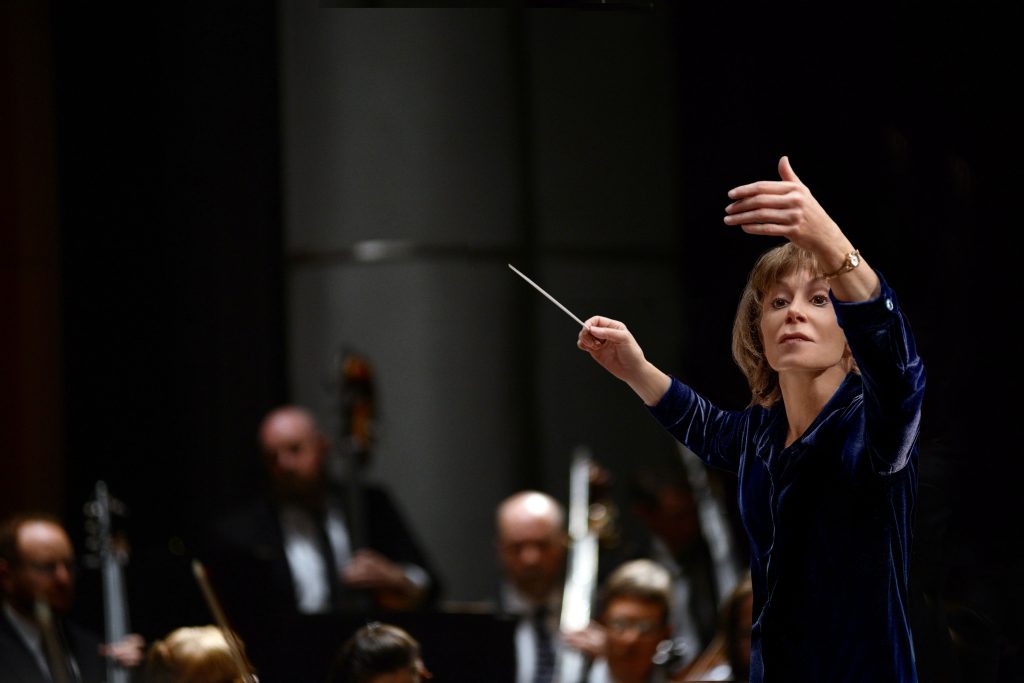
Twenty-five years ago, when JoAnn Falletta first took the helm of the Buffalo Philharmonic Orchestra, she made headlines as the first woman to lead a major American orchestra.
And that didn’t begin to describe the drama.
New to Buffalo, tiny in stature, Falletta followed maestros of gigantic proportions. The BPO’s past conductors loomed large, literally and figuratively. They included the great Viennese maestro Josef Krips and the avant-garde powerhouse Lukas Foss.
Julius Rudel, Semyon Bychkov, and Maximiano Valdes, striking figures with foreign accents, had brought their own brands of gentility and mystique.
Now here came this newcomer, an Italian American from Queens. Juilliard-educated, a classical guitarist. The orchestra was coming out of a rough time of transition. It had not been long since the musicians had been picketing in Symphony Circle in their formal wear. No one knew what the future would bring.
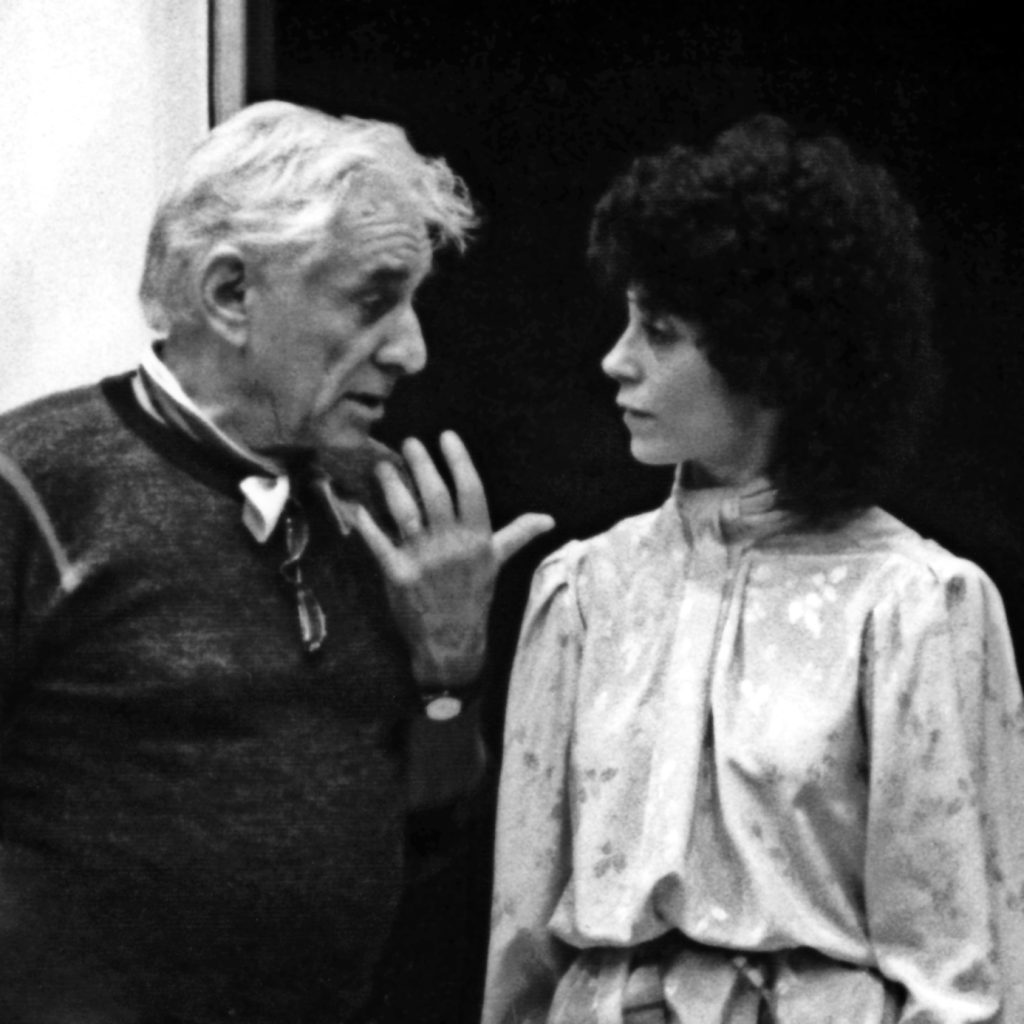
Few people would have guessed that Falletta would one day be celebrating her 25th anniversary with our orchestra, and that those 25 years would have been so happy.
Throughout Falletta’s tenure, though some years were challenging financially, in general the news was good. As the classical music critic for The Buffalo News, I marveled at that. Though minor disagreements bedevil every institution, the mood at the BPO always seemed to be one of cooperation – among Falletta, the musicians, and Executive Director Daniel Hart.
The BPO was held up as a model for other orchestras, most of which were struggling. Symphony, the magazine of the League of American Orchestras, spotlighted the BPO. So did Gramophone, the venerable British classical music magazine.
Falletta has been at the center of this success. Once, a city wanted an Old-World maestro like Krips, Rudel, or, more recently, Valdes. Now, the job had changed. The orchestra’s music director had to become one of the people.
She did that, with unwavering charm.
Falletta and her husband, Robert Alemany, have had a waterfront residence here since she arrived 25 years ago. She feels part of the community, and she relishes that.
“Sometimes I can barely keep the tears back when an audience stands up for our orchestra,” Falletta says. “When they came back after the pandemic for the first time, the musicians were crying. This orchestra is loved. They are loved.

“People come up to me and say ‘Hi, we love the orchestra.’ Musicians tell me the same thing. They say they are recognized, and they’re surprised by that. People will say, “I loved last week’s concert.’
“I’m very proud to live in Buffalo… We’ve become the ultimate Buffalo boosters…. We can’t bear it when anyone criticizes Buffalo.”
Falletta’s 25 years here show how emotionally invested she has been.
Beginning in her early days in Buffalo, people would joke about her “going airborne” – jumping in the air as she conducted an exuberant piece.
Her pleasure in joyous occasions is catching. When the BPO returned to Carnegie Hall in 2004, I saw tears of joy in her eyes at the reception afterwards.
She and Buffalo have shared good times and bad. After the World Trade Center attacks in 2001, Falletta prefaced the opening night concert with the heartfelt melody sometimes known as “Lux Aeterna,” from Elgar’s “Enigma” Variations.
Recent years brought more trying occasions. Falletta grows emotional recalling the first post-pandemic concert without masks.
“When I was able to conduct a concert seeing people’s faces, it was emotional,” she says. “We learned a lot from this experience. And I think the audience realized how much they cherished the orchestra.”
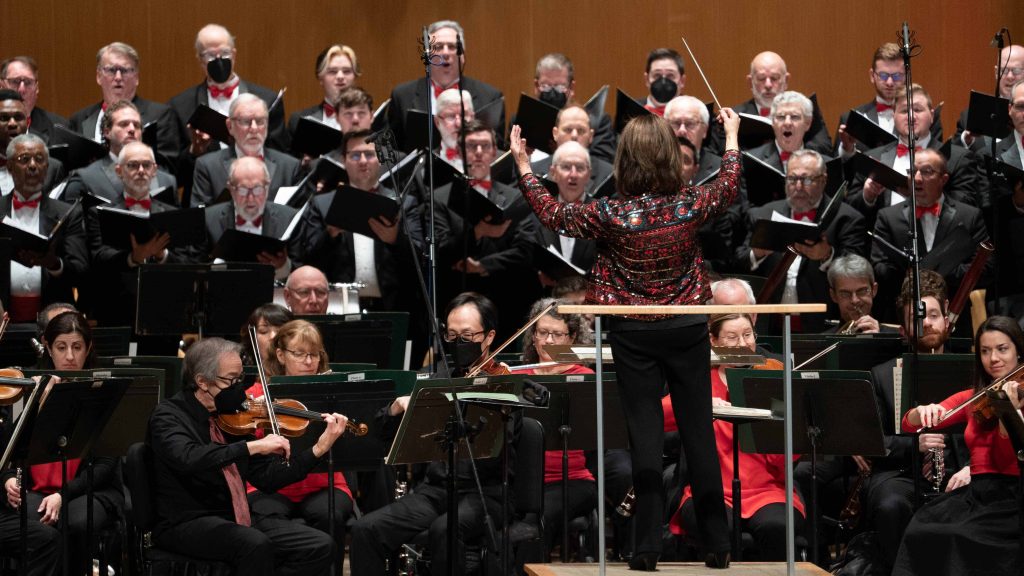
Her tenure here has been full of triumphs.
In 2004, after 20 years of no touring, the BPO went back to Carnegie Hall – and returned there on two more occasions. They toured Poland. And in a bow to Buffalo’s snowbirds, the orchestra has made five Florida tours.
That excitement has been reflected on the home front. Back in Buffalo, the BPO teamed with WNED-FM for the JoAnn Falletta International Guitar Competition. The BPO’s private Beau Fleuve label, another Falletta innovation, released another 30 recordings. The BPO began recording for Naxos, making 30 recordings. The recordings have garnered multiple Grammy Awards. In addition, Falletta has received 11 ASCAP Awards for Adventurous Programming.
Mention any accomplishments, and Falletta invariably deflects credit.
For starters, she acknowledges the help of Hart, who became executive director just five years after she took the podium.
“Dan Hart is celebrating his 20th anniversary,” Falletta says, laughing. “I insisted that I wouldn’t celebrate unless he would celebrate with me.
“He said he’s not sure how many music directors and executive directors would still be speaking to each other after all this time. We’ve always been on the same page. The music is first.”
She credits Buffalo for giving her freedom.
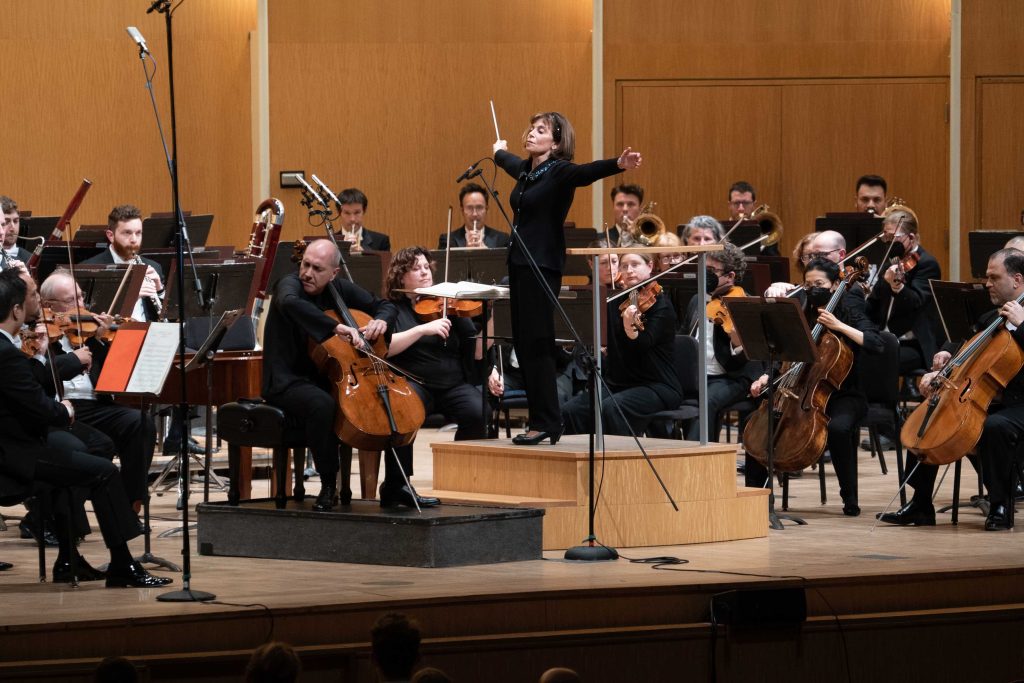
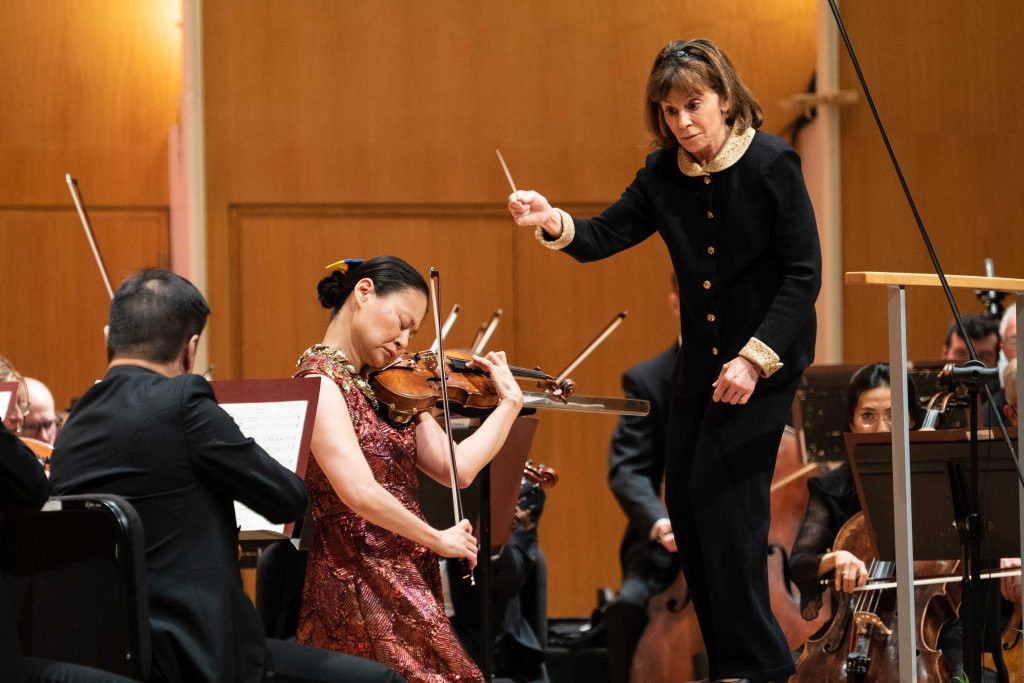
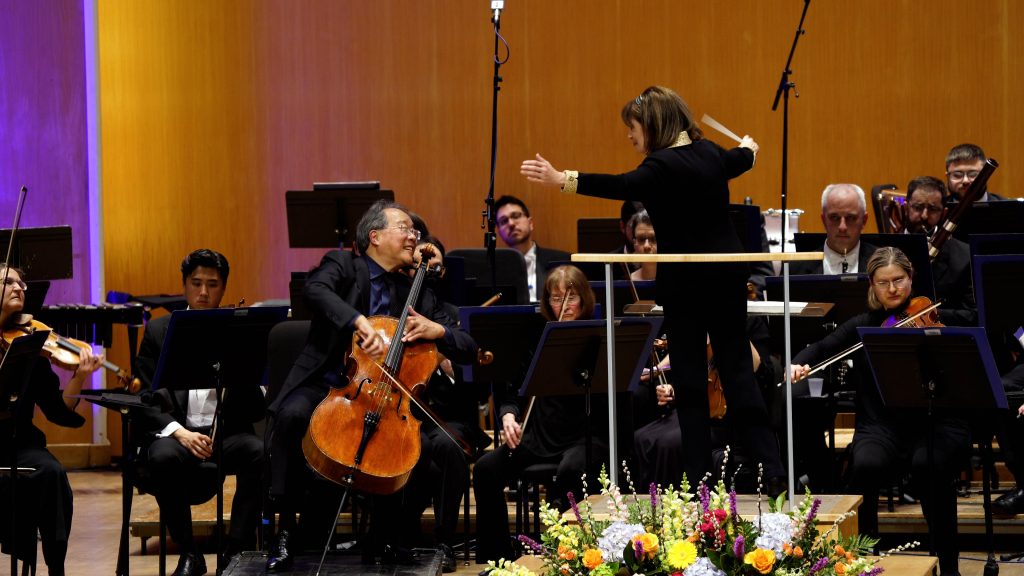
“Buffalo gave me the chance to do a lot of guest-conducting, a lot of traveling, a lot of recordings. People were willing to go out on that limb with you.”
And when she talks about music, she gives all glory to the orchestra.
“Their sound is a very rich sound,” Falletta says. “Partly because of Kleinhans,” she says, alluding to Kleinhans Music Hall’s pristine acoustics. “And partly because the orchestra has this European richness. They play American music with a lot of muscle. They are very exuberant. That’s a word I love. They’re so exuberant! They play with such personality, such character. They’re playing right to the people.”
She believes that the orchestra’s sound endeared the musicians to the Naxos label. Naxos invited the BPO to perform lush, late Romantic music.
“Naxos realized we were very suited to it. They imagined it like a late 19th century, early 20th century orchestra,” Falletta says. “We do things of that era. It brought these composers to life.
“For me, all the recordings have been highlights. It’s as if the musicians and I have discovered these voices together.”
Falletta “went airborne” at the concert marking her 20th anniversary, jumping in the air with exuberance as she conducted Beethoven’s Ninth Symphony, the “Ode to Joy.”
Five years later, she remains committed to Buffalo. She doesn’t say so in so many words, however she cites myriad plans: a celebration of the BPO’s 90th anniversary, another Florida tour, new Naxos recordings.
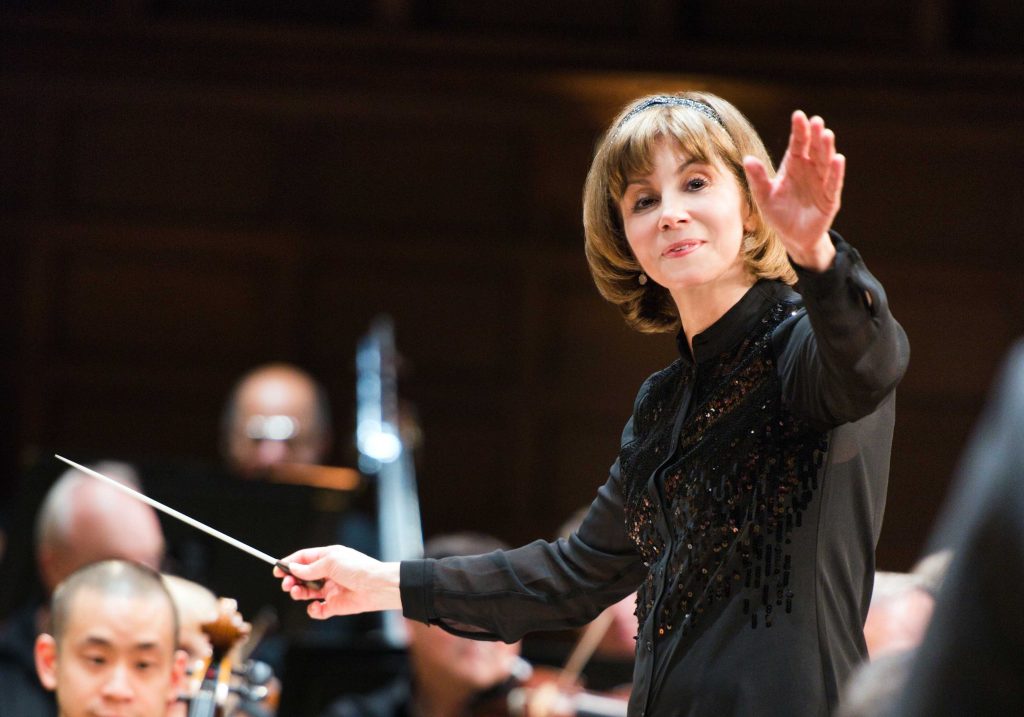
An ancient nautical phrase comes to mind: “steady as she goes.” It means to stay the course when things are going well.
“I want to get the orchestra to a place where it’s very strong and stable,” she says. “That’s my goal, I think. To make sure these musicians have a beautiful family, a beautiful hall, a community around them. That they can have a life in Buffalo. It’s a good place to be.”
What will Falletta’s ultimate legacy be? Time will tell. However, for now, that word she loves – “exuberance” – is a good guess.
And it’s likely that exuberance will have a certain Buffalo quality.
After all, she is one of us.
